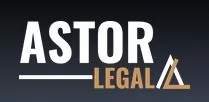When a person is arrested by police and they believe the case against them is weak, they will often try to determine how to get charges dropped before the court date.
This can also be the case where the alleged victim now wants the chares to be withdrawn.
While you may have told that it is not possible, experienced criminal lawyers will be able to quickly assess your case and set out a strategy to get charges withdrawn early. This can be before the first court date or before the final hearing or trial date.
This is a complex process which involves negotiating with police prosecutors or the Office of the Director of Public Prosecutions.
Can charges be dropped before court in Australia?
Charges can be dropped before the court date if legal representations are sent to police.
This is not a straightforward or quick process. Often police and prosecutors will require a number of weeks to firstly assess the representations, then analyse the case themselves and finally obtain approval from their chain of command for the withdrawal of the criminal charges.
That is why it is important to speak to an accredited specialist criminal lawyer early on in your case to give yourself the best chance of success.
How to Get Charges Dropped?
You can get charges dropped before the court date by:
- Obtaining the brief of evidence from the prosecution;
- Having your lawyer analyse the brief of evidence and identify defences to criminal charges;
- Obtain any exculpatory evidence (ie. evidence that proves your innocence);
- Draft detailed legal representations with reference to case law, legislation and prosecution internal policy.
It is crucial to have experienced criminal lawyers representing you to have the proceedings withdrawn. If this process can be completed early on, then it can be a solution for getting criminal charges dropped before a court date.
This procedure has been used by specialist criminal defence lawyers for years to get both minor charges such as traffic offences withdrawn, as well as more serious cases such as sexual assault and murder.
However, it is important to note that there are slightly different procedures in place if you are looking for how to withdraw an AVO or how to get domestic violence charges dropped.
1. Obtain the brief of evidence
On the first court date, if you plead not guilty then you can usually obtain orders for police to serve the brief of evidence on you. The length of time for this is usually 4 to 6 weeks.
This may include witness statements, CCTV footage, 000 recordings and any other relevant evidence - even if it is exculpatory if you.
In the event that any material is not served, your lawyer can file a subpoena for production on the relevant body. This can include 'COPS' event entries, police notebook entries, internal documents from forensic labs and experts as well the criminal history of any alleged victims or witnesses.
Often there will be resistance to this material being disclosed. This may necessitate narrowing the scope of the subpoena. There may also need to be an argument at court that there is a legitimate forensic purpose for the material.
2. Analyse the brief of evidence for defences
Next, an experienced criminal lawyer will need to meticulously analyse the brief of evidence. This is to determine whether there are any defences to criminal charges available to you.
Some common issues that may become apparent will be if the elements of the offence cannot be proved, inconsistencies or deficiencies within the evidence and statements that can be disproven by extraneous evidence.
3. Obtain exculpatory evidence
Exculpatory evidence is evidence that suggests you are not guilty of the offence you are charged with.
It is often crucial in having criminal charges withdrawn. Police may have overlooked this evidence or not have it in their possession.
Examples of exculpatory evidence include text messages or emails between yourself and the complainant, phone records or even witness statements from persons police have not spoken to.
It can also include video or audio recordings that you have in your possession. You should be mindful that it can be illegal to record someone without their permission in certain circumstances.
Once the exculpatory evidence is obtained, it needs to be presented in an admissible form. This will involve witness statements complying with the Evidence Act.
4. Draft detailed Representations
'Representations' are a legal document requesting the withdrawal of charges. They are required to be detailed and address case law and legislation as to why police should withdraw criminal charges against you.
They should be addressed to the correct person. This may be the DPP solicitor with carriage, police prosecutor, officer in charge or Local Area Commander.
Some of the arguments that can be put forward in the representations include:
Lack of or inconsistent evidence
The most common way of persuading a prosecutor to drop charges against you is if they do not have sufficient evidence to prove the elements of the offence, or the evidence is equivocal as to your guilt. There may be issues with CCTV footage, forensic evidence (eg. DNA and/or fingerprints) or you may your own evidence that discredits the prosecution case.
In these cases, your lawyer can write to the prosecution highlighting the issues with their case. This may be a basis on which the case can be withdrawn.
In order to do this, your lawyer will usually need to examine the brief of evidence in detail to pinpoint the deficiencies in the case against you.
However, you need to be mindful that this can also alert the prosecution to correct these issues before the hearing or trial. In these situations it may be to your benefit not to highlight these deficiencies until closing submissions at the end of the case.
Technical defences
There are also some technical defences that can result in charges being dismissed. For example, summary offences must be laid within six months of the alleged offence. If you are charged with a summary offence outside of this period then an experienced criminal lawyer can write to the prosecution to have the charges withdrawn.
It may also be that police have laid the incorrect charge or particularised the charge incorrectly. An example is where you are only charged with assault occasioning actual bodily harm. Police may have sufficient evidence to prove that you committed an assault, but insufficient evidence to prove that you caused any injury. In this case, you can be found not guilty of the charge even though police are able to prove the assault.
Negotiation for Alternative charges
It may also be advisable to offer alternative charges which are less serious than the offences you are facing.
A common example of this is if you are charged with an offence involving the alleged victim suffering an injury. The most common offence laid for this is assault occasioning actual bodily harm. This offence carries a maximum penalty of 5 years imprisonment. There is a less serious offence of common assault which only carries a maximum penalty of 2 years imprisonment. If there is some doubt as to the injury, or you have a possible defence, your lawyer can ask for the AOABH charge to be withdrawn and replaced with a common assault charge. This will also mean that any reference in the facts sheet to the alleged victim suffering injuries will be deleted.
This is also how to get drug charges dropped. For example, if you are charged with drug supply and you can establish on the balance of probabilities that you did not have drugs for the purpose of supply (eg. Personal use), then a specialist drug lawyer will be able to draft and file representations to police for the drug supply charge to be withdrawn and replace by a drug possession charge.
The advantage of this form of negotiation is that it can often be what helps you avoid a criminal conviction or avoid jail for more serious offences. Avoiding a criminal conviction after pleading guilty is most often achieved through section 10 of the Crimes (Sentencing Procedure) Act 1999. This can be through an outright dismissal or a good behaviour bond.
The content of this article is intended to provide a general guide to the subject matter. Specialist advice should be sought about your specific circumstances.

